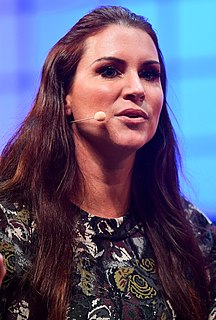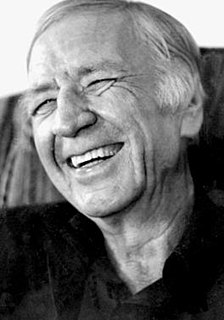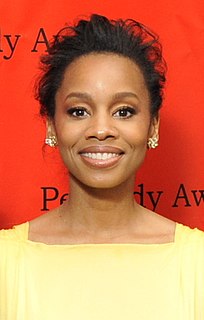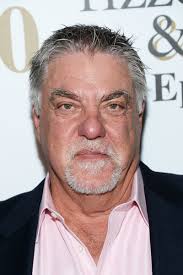A Quote by Stephanie McMahon
I think I have let ego get in the way sometimes - the pendulum swung pretty strongly. I was maybe a little overconfident at one point in my time, and then I went way the other way and thought I wasn't capable of anything.
Related Quotes
I looked at her, with her hair spilled out on the pillows and the warmth of her body warming mine. And I thought, god-dang, if this ain't a heck of a way to be in bed with a pretty woman. The two of you arguing about murder, and threatening each other, when you're supposed to be in love and you could be doing something pretty nice. And then I thought, well, maybe it ain't so strange after all. Maybe it's like this with most people, everyone doing pretty much the same thing except in a different way. And all the time they're holding heaven in their hands.
Considering retirement? When that happens, I don't want that to be the story of whatever the season it is. I don't want to have to be talking about it all the time. My plan is when the time is up, it'll be time to hang it up. When that comes, it'll come. But right now, I don't have any clue as to when that'll be. It's been that way the last couple of years. . . . I've often felt if I ever get to a point where I don't want to go recruiting and can't get excited about it, then maybe it's time. That's a pretty good indication that's probably it. And I haven't reached that point at all yet.
I think the New York theater audience is very savvy. Sometimes you get newbies who think they're going to be watching Smash onstage, and sometimes you have people who have been coming to theater for years. It's the combination of those people in an audience that makes for a pretty amazing night - their ability to give each other permission to react and enjoy, in a way that maybe they wouldn't if they weren't sitting next to each other.
From Gorbachev to Yeltsin, the pendulum swung one way; now, Putin has pushed it very far in the opposite direction, and the backlash is inevitable. So I think the year 2042 could be quite interesting. Specifically, I think today's reactionary policy will end in total failure and the need for a new perestroika; there will be a "time of troubles," which may well end in the disintegration of Russia.
I wanted to be a real writer, you can put it this way, but I was lazy. So I thought that cinema would be funnier because it's collective, and it's crazy, and it's chaotic, and also because I was based in Spain. So I said it will be easy to make a career of that - because all the other filmmakers there are very bad. And it will be funny at the same time. So this was the point. It will be funnier, easier, and maybe at the end there will be some unknown beauty, and maybe on the way we'll create the dream that a different logic is possible for life.
I think after time goes by and you earn certain rights or you break through certain barriers, you could sometimes, maybe, take it for granted what you have now that you didn't have before. And then that would lead to a certain lack of community, in a way, caring in a way, that I saw before [in gay society].
All I've learned is that you need the studio system sometimes, if your budget is a certain size, and other films you can do independently. When I think of a studio, I generally think of distribution. Since I'm a director, I have a similar creative experience on every film I do, because I can control that. But then it's a different film, I think, as it reaches the public, depending on the way it's marketed. I don't know. I haven't learned much of anything. Sometimes you need them, sometimes you don't. Sometimes they want you, most of the time they don't.
Sometimes along the way, when people are actively working, they will start to do a search for their roots and maybe get really interested in ancestry and become very good at what was just a hobby. But I think that we shouldn't wait quite that long to develop and look for those parallel interests of ours and not sometimes see them as frivolous and take them a little more seriously, and spend some time and energy and maybe even capital in pursuing them.



































